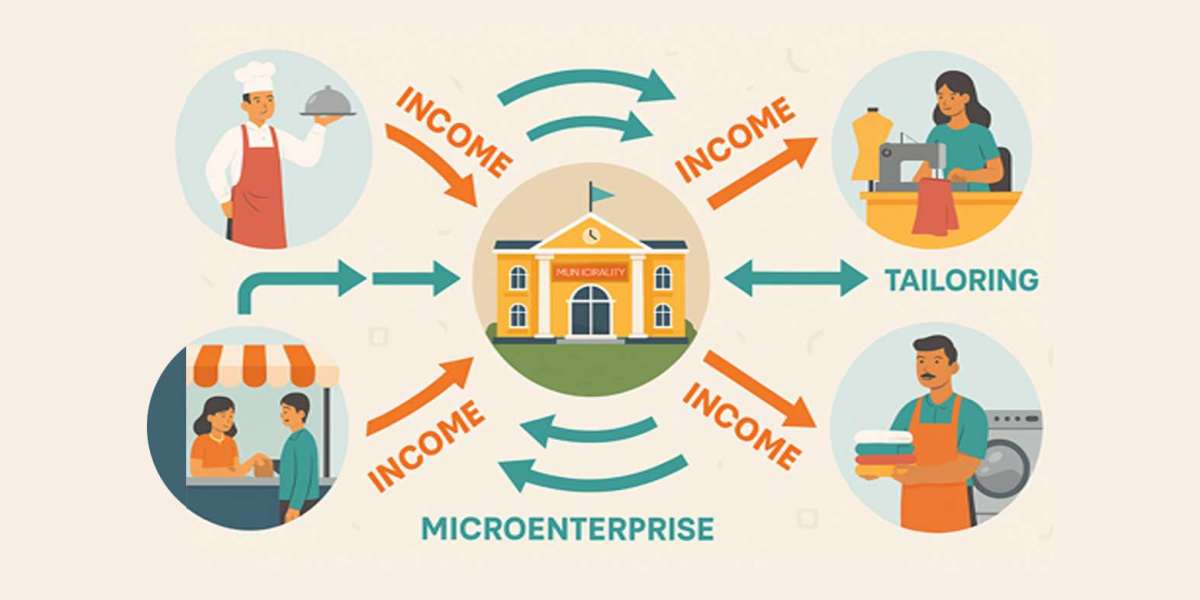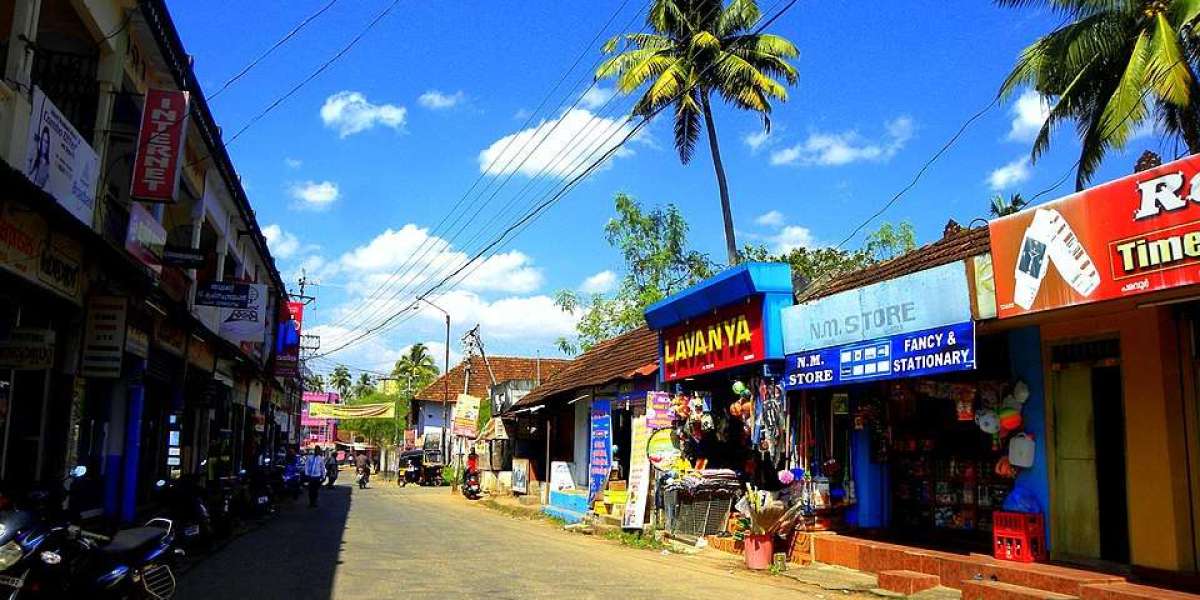Across the villages, towns, and cities of Kerala, a quiet revolution is underway. It isn’t loud or flashy. It doesn’t come from industrial parks or billion-dollar schemes. It begins at the neighborhood level- with ward councillors, residents, and a humble but mighty digital platform called weone.
At first glance, WeOne may look like just another civic tech tool. But what it actually enables is profound, a hyperlocal data ecosystem that empowers local self-governments and community members to reimagine their economy with flourishing microenterprises in each locality.
From Civic Data to Business Insight
Every day, vast amounts of grassroots-level data is handled by WeOne. Citizen needs, land use details, infrastructure gaps, available local skills, and even the frequency of service requests. These aren't abstract figures—they’re living indicators of what a ward consumes, lacks, and aspires for.
Now imagine this: a group of fresh graduates or homemakers exploring ways to start a family business. Traditionally, they would rely on guesswork, conventional wisdom, or trial and error. But by gaining access to processed data reports from WeOne, they can access ward-level business intelligence- insightful zone reports derived from real-time, people-backed data. These reports can tell them what products or services are in demand, which areas are under-served, and what local resources are under-utilized.
For instance, if the data shows frequent public complaints about plastic waste, there's a potential business opportunity for eco-packaging or cloth bag units. If there's a shortage of bicycle repair shops near government offices, that’s a viable microenterprise waiting to be tapped. The local self-governing bodies could do much more than just regulating local businesses. They can guidea and nurture them.
An European inspiration which can be readily implemented with WeOne: The Dutch Model of Localized Business Strategy
This idea of hyperlocal economic planning isn’t new, it’s practiced with striking success across many parts of Europe, particularly in the Netherlands, which scores consistently high in happiness indices.
In Amsterdam, Entrepreneurs’ Hubs (Ondernemershuizen), which are a part of local Municipalities offering deeply localized support to micro and small businesses within a ward. These locality-based centers provide business coaching, workshops on topics like pricing and marketing, and personalized guidance, all tailored to the specific neighborhood's economic dynamics. Advisors don’t just sit in offices they walk the localities, understand footfall data, consumer preferences, and infrastructure, and help entrepreneurs align their ideas accordingly.
Even more interesting is the concept of Business Investment Zones (BIZ)- where small shops and businesses collectively invest in local branding, maintenance, events, and economic studies. The city supports them with area-specific data insights and co-financing options.
By regulating even the aesthetics—like building color, store signage, or public art, the Dutch local governments preserve the visual identity of neighborhoods while also shaping economic cohesion. It’s an approach where governance, aesthetics, and entrepreneurship co-create vibrant communities.
What Kerala Can Learn and Lead With
With LSGDs WeOne, Kerala now holds the foundational tools to do the same, and even better, to do it democratically and inclusively.
Local self-government bodies in Kerala have always been close to the people. What WeOne adds is the digital lens—allowing these bodies to monitor, analyze, and act on real-time data from every ward. This transforms Panchayats and Municipalities into business mentors and strategic planners—not just permit-issuing entities.
A ward councillor, using WeOne’s backend reports, can convene local youth and suggest microenterprise ideas that have real demand—based on consumption trends, local complaints, or community inputs. For example:
- A rise in demand for home-cooked meals can inspire kitchen collectives.
- A lack of repair services for electronic goods can lead to training in mobile servicing.
- A pattern of small tuition needs across several homes could give birth to a local learning pod system.
WeOne becomes the launchpad for these micro dreams—grounded in logic, guided by data, and uplifted by community participation.
Why This Model Works
1. Data as the New Soil
Like good soil makes a farm productive, WeOne’s data creates fertile ground for business ideas.The local bodies could use this data to reveals the local economic DNA- what people need, what they lack, and what they’re willing to pay for.
2. Local Governments as Enablers
Inspired by the European model, local governments can act not as controllers but facilitators of business growth, offering curated data, workshops, one-on-one mentoring, and space-sharing initiatives based on WeOne insights. This generates a whole new dimention of Own Source Revenue, which is essentially productive, rather relying too much on penalizing sort of revenue.
3. Community-first Planning
Microenterprises don’t have to emerge in isolation. Through WeOne’s forums and group tools, entrepreneurs can form co-operatives, share raw materials, and co-promote their services—all supported by the collective trust of the community.
Stories That Could Be Born
Picture a tailor in a remote Panchayat who notices, through WeOne, the increased registration of girl students for hostel admissions. With a little support, she could launch a line of simple, locally-made clothing for hostel-goers. Or a group of youngsters spot an increase in waste pick-up requests, turning it into a business opportunity for recycling and resale.
A beautician discovers the ward lacks home-service grooming providers and starts a doorstep salon. A carpenter finds that the local school needs affordable furniture repair, and receives funding from the local body based on WeOne’s recommendations.
These aren’t distant dreams—they’re data-backed realities waiting to unfold.
A Future Worth Building
WeOne, if used with vision, can birth a new generation of entrepreneurs- rooted in place, guided by purpose, and equipped with insight, not just instinct. It invites young people, women, retired citizens, and returning migrants to build something of their own—starting not with capital, but with clarity.
This model can be Kerala’s answer to rural-urban migration, youth unemployment, and market saturation in conventional jobs. Each ward becomes a miniature economy, and every business born within it adds to the self-reliance of the local population.
Bringing It All Together
Like the Dutch who regulate house colors to preserve local charm while guiding small businesses toward collective prosperity, Kerala too can balance tradition and innovation. With WeOne, we don’t just digitize public grievances—we open gateways to local enterprise, one idea at a time.
The local economy doesn’t need mega malls to flourish. It needs micro-shops with macro understanding. And through WeOne, each ward becomes a lab of possibilities, where young minds can test, refine, and grow businesses that make life better for everyone.
So here’s the call: look around your ward. Approach your local governing body for expert advice on business and read local signals. Use the data. Talk to your community. The next great business idea doesn’t lie in the stock market, a trade fair, or a network marketing offer that makes you hallucinate. it’s waiting at the corner tea shop, on the ward’s waste data, in a public request on WeOne.
Your community knows what it needs. Now, you know how to build for it.







